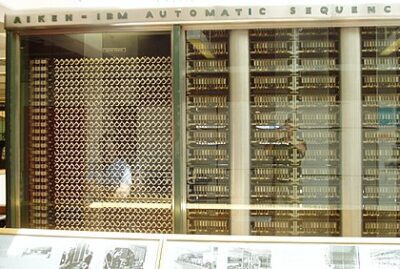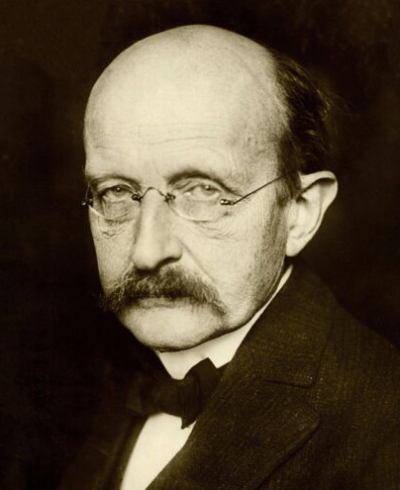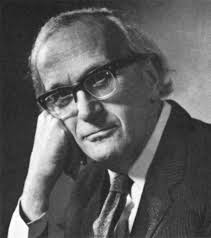Grace Hopper: Trailblazer of COBOL and Naval Rear Admiral Whose Influence Endures in Modern IT
イントロダクション
当ブログ記事では、COBOL言語の母として知られるグレース・ホッパー准将の軌跡と、彼女が現代のITに与えた影響について探求します。
ホッパー准将は海軍でのキャリアを積み、コンピュータ言語の開発において重要な役割を果たしました。
彼女の功績は、現代の情報技術においても大きな影響を与えており、その偉業は今もなお称賛されています。
彼女の生涯と業績を通じて、私たちは彼女の遺産が現代のテクノロジーにどのような影響を与えているのかを探ることで、彼女の偉大さを再認識する機会となるでしょう。
Introduction
In this blog post, we explore the journey of Rear Admiral Grace Hopper, known as the mother of COBOL, and her lasting impact on modern IT.
Rear Admiral Hopper built her career in the Navy and played a crucial role in the development of computer languages.
Her achievements continue to influence contemporary information technology, earning her ongoing admiration.
Through her life and accomplishments, we have the opportunity to rediscover her greatness by examining how her legacy shapes today’s technology landscape.
グレース・ホッパーとは?
グレース・ホッパーは、コンピュータ科学の分野で功績を残した人物であり、COBOL(Common Business-Oriented Language)言語の開発に深く関与しています。
彼女は海軍での准将としても活躍し、その後もプログラミング言語の分野で重要な役割を果たしました。
彼女の功績は、現代のIT技術においても影響を与え続けています。
COBOL言語は、彼女の革新的な発想と貢献によって誕生しました。
彼女の偉業は、女性としての地位向上にも大きな影響を与え、現代のプログラマーやIT業界においてもその遺産が受け継がれています。
Who is Grace Hopper?
Grace Hopper is a figure renowned in the field of computer science, deeply involved in the development of COBOL (Common Business-Oriented Language).
She excelled as a Rear Admiral in the Navy and continued to play a significant role in the programming language domain.
Her achievements continue to influence modern IT technology.
COBOL language owes its existence to her innovative thinking and contributions.
Her accomplishments have had a profound impact on advancing the status of women and her legacy endures in today’s community of programmers and the IT industry.

Harvard Mark I, also known as IBM ASCC, America’s first electromechanical computer
グレース・ホッパーの経歴とその偉業
グレース・ホッパーは、コンピュータ科学の先駆者であり、特にプログラミング言語COBOLの開発において重要な役割を果たしました。
彼女は1906年にニューヨークで生まれ、数学と物理学を専攻してヴァッサー大学を卒業後、イェール大学で数学の博士号を取得しました。
彼女のキャリアは、第二次世界大戦中にアメリカ海軍に入隊し、コンピュータ技術の研究に従事することから始まります。
ホッパーは、プログラミングをよりアクセスしやすくするため、英語に近い構文を持つ新しい言語の開発に尽力しました。
その結果、COBOL(Common Business-Oriented Language)が誕生し、ビジネスデータ処理に革命をもたらしました。
海軍でのホッパーの役割は、彼女の技術的な専門知識に加え、リーダーシップにも及びました。
彼女は海軍で多くの昇進を経験し、最終的には海軍准将にまで昇格しました。
ホッパーは、その卓越した貢献により、多くの賞を受賞し、コンピュータ科学の分野における女性の地位向上に影響を与え続けています。
海軍での彼女の役割と昇進
グレース・ホッパーは、コンピュータ科学とアメリカ海軍における顕著な功績で知られています。
彼女はプログラミング言語COBOLの開発に貢献し、その業績は今日でも多くのシステムでその影響を見ることができます。
ホッパーが海軍で果たした役割は、そのキャリアを通じて多岐にわたり、最終的には海軍准将まで昇進しました。
彼女は数々の賞を受賞し、特にコンピュータ科学の分野で女性の先駆者として尊敬されています。
ホッパーの経歴は、科学技術における女性の地位向上に貢献し、後世のモデルとなっています。
彼女の物語は、情熱と献身がいかにして歴史を形作るかの素晴らしい例です。
Grace Hopper’s Career and Achievements
Grace Hopper is renowned as a pioneer in computer science, particularly for her pivotal role in the development of the programming language COBOL.
Born in 1906 in New York, she graduated from Vassar College with a degree in mathematics and physics, later earning a Ph.D. in mathematics from Yale University.
Her career began during World War II when she joined the U.S. Navy and engaged in computer technology research.
Hopper dedicated herself to making programming more accessible by spearheading the development of a new language with syntax closer to English.
As a result, COBOL (Common Business-Oriented Language) was born, revolutionizing business data processing.
Her role in the Navy extended beyond technical expertise to leadership, earning her numerous promotions, eventually rising to the rank of Rear Admiral.
Hopper’s outstanding contributions have garnered her numerous awards and continue to influence the advancement of women in computer science.
Her career trajectory exemplifies how passion and dedication can shape history, especially in the realm of science and technology.
COBOL言語の誕生とグレース・ホッパーの貢献
COBOL言語が世に出たのは1959年、コンピューターの黎明期にあたります。
このプログラミング言語は、企業のビジネス処理を効率化することを目的としており、その開発にはアメリカ海軍のリアルアドミラルであるグレース・ホッパーが大きく関与していました。
彼女は、コンピューター科学とプログラミング言語の発展において、先駆者としての地位を築いています。
グレース・ホッパーは早くからコンピューターの潜在能力を理解し、より多くの人々がコンピューターを使えるようにする必要性を説いていました。
彼女のビジョンは、COBOLの設計理念に反映され、英語に近い文法を採用することで、非技術者でもプログラムが書けるようになることを可能にしました。
COBOLは特に金融業界や政府機関で広く採用され、その堅牢性とビジネス処理における能力は今日に至るまで価値が認められています。
プログラムが読みやすく、修正が容易なため、長期間にわたって利用されるシステムに適しているのです。
グレース・ホッパーは、COBOLを含むプログラミング言語の発展において、コンピューターがよりアクセスしやすいツールになるための道を開きました。
彼女の貢献は、現代の情報技術の基盤を築く上で不可欠なものであり、その影響は現代にも続いています。
COBOLの開発背景とグレース・ホッパーの関与
COBOLは、ビジネス指向のプログラミング言語として1959年に誕生しました。
その開発には、コンピュータ科学のパイオニアであるグレース・ホッパーが深く関与していました。
彼女は、プログラミングがより多くの人に理解され、アクセスしやすいものであるべきだというビジョンを持っており、COBOL言語の設計にその理念を反映させました。
グレース・ホッパーは、COBOLが人間に近い自然言語に基づいた構文を持つことを提唱しました。
このアプローチにより、COBOLは当時としては革新的な言語となり、非技術者でもコンピュータプログラムの作成や理解が容易になりました。
彼女のこの貢献は、COBOLがビジネスや金融業界で広く採用される基盤を築くことになりました。
COBOL言語は、その後も長きにわたって業務処理の分野で中心的な役割を果たし続けており、多くの金融機関や保険会社では今もなおそのコードが動作しています。
グレース・ホッパーの先見の明と、彼女が推進したプログラミング言語のアクセシビリティは、現代のソフトウェア開発においても引き続き重要な影響を与えています。
COBOL言語の特徴とその革新性
COBOL(Common Business-Oriented Language)は、ビジネス分野に特化したプログラミング言語として1959年に誕生しました。
その開発には、コンピュータ科学のパイオニアであるグレース・ホッパーが深く関与していることが知られています。
彼女は、プログラムをより人間が理解しやすい言語で記述することを提唱し、COBOL言語の設計において重要な役割を果たしました。
COBOLの設計理念は、当時としては画期的なものでした。
英語に似た文法を採用することで、非技術者でもプログラムの読み書きがしやすくなるよう配慮されていました。
また、その構造は、大規模なデータ処理を必要とするビジネス環境において、堅牢性と移植性を備えていることが特徴です。
これにより、COBOLは金融機関や政府機関など、多くの企業で広く採用されることとなりました。
COBOL言語の革新性は、その長寿命にも表れています。
現代の多くのシステムが新しいプログラミング言語に移行する中、COBOLで書かれたシステムは今もなお稼働しており、その信頼性と効率性が評価されています。
グレース・ホッパーのビジョンが実装されたCOBOLは、プログラミング言語の歴史において重要な地位を占めているのです。
COBOL言語の今後の課題
COBOL(Common Business-Oriented Language)は、1959年に開発されたプログラミング言語であり、主にビジネスアプリケーションの開発に使用されています。
この言語は、ビジネスのデータ処理や取引処理を目的として設計され、長い歴史の中で信頼性と安定性を確立しました。
COBOLの特徴の1つは、自然言語に近い英文のような構文を持っていることです。
これにより、プログラムの可読性が高まります。
COBOLプログラムは”DIVISION”、”SECTION”、”PARAGRAPH”などの階層構造で構築され、手続き型プログラミングのアプローチを採用しています。
データ処理はCOBOLの強みの1つであり、文字列や数値などの様々なデータ型をサポートしています。
ファイル処理やデータベースアクセスなど、大規模なデータセットを扱うための構文や機能が豊富に提供されています。
また、COBOLは非常に移植性が高く、さまざまなプラットフォームやシステムで動作します。
多くの大規模な企業や組織で、COBOLは長い間使われ続けています。
銀行業界や保険業界などの金融取引システムや、政府機関のシステムなど、重要な業務処理に利用されています。
そのため、多くのレガシーシステムにCOBOLのコードが残存しており、これらのシステムのメンテナンスやアップデートにCOBOLの知識とスキルが必要です。
ただし、COBOLにはいくつかの課題も存在します。
その1つは、古典的な設計と構文が、現代の革新的なプログラミング言語とは異なることです。
そのため、新しい開発者にとっては学習コストがかかることがあります。
また、COBOLの技術者層は高齢化しており、新しい世代の開発者にそのスキルを継承する必要性があります。
それに伴い、COBOLの知識を持つ若い開発者の需要が増しています。
この需要に応えるため、大学や教育機関でCOBOLを含むカリキュラムを提供する取り組みも増加しています。
現在、レガシーシステムの近代化やアップグレードの動きが進んでおり、COBOLコードを保持したまま、より効率的で柔軟なシステムに移行する試みも行われています。
これらの取り組みにより、COBOLは引き続き重要な役割を果たしながらも、新しい技術との統合を進めています。
Birth of COBOL Language and Grace Hopper’s Contribution
COBOL, born in 1959 during the early days of computers, aimed to streamline corporate business processing.
Rear Admiral Grace Hopper of the U.S. Navy played a significant role in its development, establishing herself as a pioneer in computer science and programming languages.
Early on, Hopper recognized the potential of computers and advocated for making them accessible to a wider audience.
Her vision shaped COBOL’s design principles, adopting syntax closer to English to enable non-technical users to write programs.
COBOL found widespread adoption, especially in finance and government sectors, recognized for its robustness and business processing capabilities.
Grace Hopper’s foresight paved the way for computers to become more accessible tools, cementing her indispensable contribution to modern information technology.
Background of COBOL Development and Grace Hopper’s Involvement
COBOL emerged in 1959 as a business-oriented programming language, deeply influenced by computer science pioneer Grace Hopper.
She envisioned programming should be understandable and accessible to many, reflecting this philosophy in COBOL’s design.
Hopper advocated for COBOL to use syntax resembling natural language, making it easier for non-technical users to write and understand computer programs.
Her contributions ensured COBOL became foundational in business and financial sectors, where its longevity and reliability remain highly valued.
COBOL’s innovative features continue to play a crucial role in modern software development, reflecting Grace Hopper’s vision for accessible programming languages.
Challenges Ahead for COBOL
COBOL, developed in 1959, remains a cornerstone for business applications, known for its reliability and stability over its long history.
One of its distinguishing features is its syntax, which resembles natural English sentences, enhancing program readability.
COBOL programs are structured hierarchically with “DIVISION,” “SECTION,” and “PARAGRAPH,” adopting a procedural programming approach.
It supports various data types like strings and numbers, facilitating robust handling of large datasets such as file processing and database access.
COBOL’s high portability allows it to operate across different platforms and systems, serving critical business functions in sectors like banking, insurance, and government.
Despite its strengths, COBOL faces challenges due to its classical design and syntax, differing from modern innovative programming languages.
This poses a learning curve for new developers, and the aging COBOL workforce necessitates knowledge transfer to younger generations.
To meet this demand, educational institutions are increasingly offering curricula that include COBOL, aiming to bridge the skills gap.
Efforts are underway to modernize legacy systems while retaining COBOL code, transitioning to more efficient and flexible systems.
Thus, while COBOL continues to fulfill essential roles, integrating with new technologies remains a key focus for its ongoing relevance.
「バグ」の語源としてのエピソード
コンピュータの「バグ」という用語は、一般にプログラムやシステムにおける誤動作や不具合を指します。
この用語の起源は、実際には19世紀の工学分野にまで遡ることができるのですが、特に有名なエピソードがあります。
それは、コンピュータ科学者であり、アメリカ海軍の提督でもあったグレース・ホッパー氏と関連しています。
1947年、ホッパー氏が勤務していたハーバード大学のマークIIコンピュータで、ある問題が発生しました。
トラブルシューティングの過程で、技術者たちは機械の中に実際の虫、つまり蛾が挟まっているのを発見しました。
この虫が原因でマシンが正常に動作しなかったため、これを取り除いたという記録が残っています。
ホッパー氏はこの出来事を記録し、以降「バグ」という用語がコンピュータの問題を指す際に広く用いられるようになりました。
グレース・ホッパー氏は、プログラミング言語COBOLの開発にも深く関わっています。
COBOLは、ビジネスデータ処理に特化した言語であり、その設計においてホッパー氏の影響は非常に大きいとされています。
彼女はプログラミングをより多くの人にとってアクセスしやすくすることを目指し、COBOLが英語に近い文法を持つことに貢献しました。
このように、グレース・ホッパー氏はコンピュータ科学の分野において、多大な貢献を残した人物として記憶されています。
コンピュータのバグとグレース・ホッパーの逸話
コンピュータのバグという用語は、今やソフトウェア開発における日常語となっていますが、その起源はある興味深い逸話にまで遡ります。
1947年、ハーバード大学でマークIIという名のコンピュータが誤動作を起こした際、グレース・ホッパー率いるチームがその原因を調査しました。
彼らは機械の中に実際の虫、つまりモスを発見し、これを取り除いたことで問題が解決されました。
ホッパーはこの出来事を「バグを取り除く(debugging)」と記録し、ここから「バグ」という言葉がプログラミングの文脈で使われるようになったとされています。
グレース・ホッパーはただのバグ発見者ではありませんでした。
彼女は数学者であり、アメリカ海軍の軍人でもありましたが、特にプログラミング言語COBOLの開発において重要な役割を果たしたことで知られています。
COBOLは商業的および金融的なデータ処理に広く使われる言語であり、その設計においてホッパーは英語に近い文法を用いることで、より多くの人々がコンピュータプログラミングにアクセスできるようにしたのです。
ホッパーはまた、コンピュータ科学における教育の普及にも尽力し、彼女の業績は後世のプログラマや技術者に多大な影響を与え続けています。
そのためグレース・ホッパーの名は、プログラミング言語COBOLのみならず、コンピュータ科学の歴史においても重要なキーワードとなっているのです。
The Origin of “Bug” in Computer Science: An Episode
The term “bug” in computing generally refers to malfunctions or glitches in programs or systems.
While its origins trace back to 19th-century engineering, there is a particularly famous episode associated with it.
In 1947, at Harvard University, during the era of the Mark II computer, a problem arose.
During troubleshooting, engineers discovered an actual insect—a moth—stuck inside the machine, causing it to malfunction.
Grace Hopper, a computer scientist and Rear Admiral in the U.S. Navy, documented this incident.
She recorded removing the “bug,” which subsequently became a widely used term to refer to issues in computer systems.
Grace Hopper was deeply involved in the development of the COBOL programming language.
COBOL, designed for business data processing, owes much of its structure to her influence.
She aimed to make programming more accessible, contributing to COBOL’s use of syntax resembling English.
Thus, Grace Hopper is remembered for her significant contributions to the field of computer science, influencing generations of programmers and engineers.
The Bug in Computers and Grace Hopper’s Anecdote
The term “bug” in computing, now commonplace in software development, has an intriguing origin story.
In 1947, at Harvard University, the Mark II computer experienced a malfunction, prompting investigation by Grace Hopper’s team.
They discovered an actual moth inside the machine, which they removed, resolving the issue.
Hopper famously documented this as “debugging,” introducing the term into programming contexts.
Grace Hopper was more than just a bug finder. She was a mathematician and a naval officer known for her pivotal role in developing the COBOL programming language.
COBOL, widely used for commercial and financial data processing, owes its accessibility to Hopper’s decision to employ syntax resembling English.
She also dedicated herself to expanding education in computer science, leaving a lasting impact on future generations of programmers and technologists.
Thus, Grace Hopper’s name remains a significant keyword not only in the history of COBOL but also in the broader narrative of computer science.
女性としての壁を乗り越えたグレース・ホッパー
グレース・ホッパーは、数学の博士号を女性として取得したことで歴史に名を刻んだ人物です。
彼女の学術的業績は、当時の性別による障壁を打ち破る原動力となりました。
特に、プログラミング言語COBOLの開発における彼女の貢献は計り知れないものがあります。コ
ンピュータ科学の分野で女性が果たす役割の拡大に大きく寄与したホッパーは、軍隊においても女性の地位を向上させるために尽力しました。
彼女は海軍で最高位にまで登りつめ、そのキャリアは多くの女性にとっての手本となっています。
グレース・ホッパーの遺産は、今日のテクノロジー業界における女性の進出を後押しする重要な力となっており、彼女の影響は現代においても色褪せることがありません。
女性としての数学の博士号取得とその意義
数学の博士号を女性として取得することは、単なる学術的な成就を超えた意義を持ちます。
特に、グレース・ホッパーのような先駆者は、女性が高等教育で卓越した成果を収めることができることを示しました。
ホッパーは数学の博士号を取得した後、コンピュータ科学の分野において重要な役割を果たし、プログラミング言語COBOLの開発に貢献しました。
彼女の業績は、女性が学術界だけでなく、軍隊や技術の世界でもリーダーシップを取ることができることを証明しています。
ホッパーが米国海軍でのキャリアを通じて示したように、女性の地位向上は、社会のさまざまな分野での多様性とイノベーションを促進します。
その結果、女性の学術的な追求は、より広い文脈での平等と成長に寄与するのです。
軍隊と学術の世界での女性の地位向上への影響
グレース・ホッパーは、数学の博士号を女性として取得し、その後、コンピュータ科学の分野で顕著な業績を残しました。
彼女は特に、プログラミング言語COBOLの開発において重要な役割を果たし、技術的な障壁を超えることで女性の地位向上に大きな影響を与えた人物です。
ホッパーはアメリカ海軍でのキャリアを通じて、軍隊における女性の地位向上にも貢献しました。
彼女の業績は、学術界においても女性がリーダーシップを取るための道を拓く助けとなりました。
ホッパーのような先駆者の存在は、後進の女性たちにとって刺激となり、多くの分野で女性が活躍するきっかけを作り出しています。
Grace Hopper: Overcoming Barriers as a Woman
Grace Hopper made history as a woman earning a doctoral degree in mathematics, breaking through gender barriers of her time.
Her academic achievements became a driving force in advancing opportunities for women, particularly in her monumental contributions to the development of the COBOL programming language.
Hopper’s role in expanding the role of women in computer science was profound, and she tirelessly advocated for improving the status of women, even within the military.
Rising to the highest ranks in the Navy, her career became a beacon for many women.
Grace Hopper’s legacy continues to empower women in the technology industry today, her influence remaining undiminished in the modern age.
The Significance of a Woman’s Doctoral Degree in Mathematics
Earning a doctoral degree in mathematics as a woman holds significance beyond mere academic accomplishment.
Pioneers like Grace Hopper demonstrated that women could achieve excellence in higher education.
After earning her doctoral degree, Hopper went on to play a pivotal role in computer science, contributing significantly to the development of the COBOL programming language.
Her achievements proved that women could lead not only in academia but also in the military and technology sectors.
As demonstrated through her career in the U.S. Navy, Hopper’s efforts to advance women’s status fostered diversity and innovation across various fields of society.
As a result, women’s academic pursuits contribute to broader contexts of equality and growth.
Impact on Women’s Advancement in Military and Academic Fields
Grace Hopper, as a woman with a doctoral degree in mathematics, left a remarkable legacy in computer science.
Her pivotal role in the development of the COBOL programming language and her efforts to break down technical barriers had a profound impact on advancing women’s status.
Throughout her career in the U.S. Navy, Hopper also contributed to improving the position of women in the military.
Her achievements paved the way for women to take on leadership roles in academia and beyond.
Pioneers like Hopper continue to inspire future generations of women, creating opportunities for them to excel across various fields.
現代ITにおけるグレース・ホッパーの遺産
グレース・ホッパーは、コンピュータ科学の進歩に不可欠な貢献をした人物として広く認識されています。
彼女の最も顕著な遺産の一つは、プログラミング言語COBOLの開発における彼女の役割です。
COBOLは、ビジネス、金融、行政で広く使用される言語となり、今日でもその影響力は続いています。
ホッパー提唱の「コンピュータへの英語に近いプログラミング言語」のコンセプトは、現代のプログラミング言語設計においても重要な原則となっています。
グレース・ホッパーの思想は、現代テクノロジーにも反映されています。
彼女はユーザーフレンドリーなソフトウェアの開発を推進し、そのアプローチは今日のアプリケーションやシステム設計においても見ることができます。
ホッパーが提唱したモジュラー化やコードの再利用は、現代のソフトウェア開発におけるベストプラクティスとして受け入れられています。
彼女の前進思想は、教育から実務まで、IT業界全体に革新をもたらしました。
COBOL言語は今日においても、多くの企業システムや銀行のトランザクション処理において活躍しており、その信頼性と堅牢性は高く評価されています。
グレース・ホッパーの遺産は、これらのシステムが今後も継続して使用されることを通じて、現代ITにおける彼女の影響を確固たるものにしています。
彼女の業績は、現代のコンピュータ科学者やプログラマーにとって、引き続きインスピレーションを提供し続けています。
COBOL言語の現在と未来
COBOL言語、つまり共通事業指向言語は、1959年にアメリカ国防総省の支援のもと、グレース・ホッパー提督を含む専門家チームによって開発されました。
その目的は、様々なコンピューターで動作する統一されたプログラミング言語を作り出すことでした。
グレース・ホッパーは、プログラムがより理解しやすい英語に近い形で記述されるべきだという信念のもと、COBOLの設計に大きく貢献しました。
現在、COBOLは金融機関や政府機関など、多くの基幹システムで依然として重要な役割を果たしています。
これらのシステムは日々、膨大なトランザクションを処理しており、COBOLの信頼性と安定性が求められているのです。
しかし、新しい技術の台頭とプログラマー世代の交代により、COBOLの専門家は減少傾向にあります。
未来において、COBOL言語はさらなるモダナイゼーションが必要とされています。
クラウドコンピューティングやモバイル技術との統合、開発ツールの更新などが、この古典的な言語を現代のIT環境に適応させるために進められています。
グレース・ホッパーの遺産は、現代のプログラマーたちによって新たな形で受け継がれており、彼女の思想は今日のテクノロジー革新にも影響を与えています。
COBOLの未来は、過去の遺産と新しい技術の融合にかかっています。
既存のシステムの重要性を保ちつつ、新世代の開発者がこの言語を学び、活用するための教育とリソースが不可欠です。
グレース・ホッパーの初期のビジョンが、21世紀の技術革新の中で生き続けるためには、COBOLコミュニティの協力と投資が必要です。
グレース・ホッパーの思想が反映された現代テクノロジー
グレース・ホッパーといえば、コンピュータ科学における先駆者の一人であり、その影響力は現代のテクノロジーにも色濃く反映されています。
彼女が開発に関わったプログラミング言語COBOLは、ビジネスアプリケーションにおける基盤として長年にわたり使用されてきました。
COBOLはその読みやすさと、経済システムにおける堅牢性で知られており、多くの金融機関や政府機関で今も活用されています。
ホッパーが提唱した思想の一つに、ユーザーフレンドリーなプログラミング言語の開発があります。
彼女はプログラムをより多くの人が理解しやすい形で書けるようにすることを目指しました。
このアプローチは、現代の多くのプログラミング言語設計にも影響を与えており、直感的で理解しやすいコードの書き方が推奨されています。
また、グレース・ホッパーはデバッグという用語を普及させたことでも知られています。
ある日、彼女のチームがコンピュータの障害を調査したところ、機械の中から実際の虫が見つかり、それを取り除くことで問題が解決したという逸話があります。
このエピソードは、現代のソフトウェア開発におけるバグ修正の概念にも繋がっています。
グレース・ホッパーが残した遺産は、現代テクノロジーにおいても非常に重要な役割を果たしています。
彼女の思想は、ユーザーが直面する問題を解決するために、よりアクセスしやすく、扱いやすいテクノロジーの開発へと繋がっているのです。
プログラミング言語COBOLだけでなく、彼女の革新的な考え方は今日のソフトウェア開発の基礎となっており、彼女の貢献は計り知れないものがあります。
Grace Hopper’s Legacy in Modern IT
Grace Hopper is widely recognized for her indispensable contributions to the advancement of computer science.
One of her most notable legacies is her role in the development of the COBOL programming language.
COBOL has become widely used in business, finance, and administration, and its influence continues to be felt today.
Hopper’s advocacy for “English-like programming languages for computers” remains an important principle in contemporary programming language design.
Her philosophy has also influenced modern technology; she championed the development of user-friendly software, an approach visible in today’s application and system designs.
Hopper’s ideas on modularity and code reuse are accepted as best practices in modern software development, innovating across education and industry within the IT sector.
COBOL Language: Present and Future
COBOL, or Common Business-Oriented Language, was developed in 1959 under the auspices of the U.S. Department of Defense, led by Admiral Grace Hopper and a team of experts.
Their goal was to create a unified programming language that could operate across various computers.
Grace Hopper’s belief that programs should be written in a form closer to understandable English significantly contributed to COBOL’s design.
Today, COBOL remains crucial in many core systems, such as those in financial institutions and government agencies.
These systems handle vast transactions daily, demanding the reliability and stability for which COBOL is known.
However, with the emergence of new technologies and a generational shift among programmers, there is a declining number of COBOL experts.
For the future, COBOL requires further modernization efforts, integrating with cloud computing, mobile technologies, and updated development tools to adapt to contemporary IT environments.
Grace Hopper’s legacy is being carried forward in new ways by today’s programmers, and her ideas continue to influence technological innovations in the 21st century.
Reflections of Grace Hopper’s Philosophy in Modern Technology
Grace Hopper, a pioneer in computer science, has left a profound imprint on modern technology.
The programming language COBOL, which she helped develop, has been a cornerstone in business applications for many years.
Known for its readability and robustness in economic systems, COBOL is still widely used in financial institutions and government agencies today.
One of Hopper’s advocated philosophies was the development of user-friendly programming languages.
She aimed to make programs easier for more people to understand, a principle that has influenced many modern programming language designs, emphasizing intuitive and comprehensible code.
Additionally, Grace Hopper is credited with popularizing the term “debugging.”
Legend has it that her team found an actual bug inside a computer, causing a malfunction, and removing it resolved the issue—an anecdote that laid the groundwork for the concept of bug fixing in modern software development.
Grace Hopper’s legacy plays a crucial role in modern technology by contributing to the development of more accessible and manageable technologies to solve user problems.
Her innovative thinking, foundational in not just the COBOL programming language but also in modern software development, underscores her immeasurable contributions.
結び:グレース・ホッパーの遺したものと私たちの未来
グレース・ホッパーはコンピュータ科学の分野において、その先駆者として知られています。
彼女の最も顕著な貢献の一つは、プログラミング言語COBOLの開発に関わったことです。
この言語はビジネスアプリケーションに広く使われており、その設計は今日でも多くの現代的な言語に影響を与えています。
ホッパーはまた、女性が技術分野で重要な役割を果たすことを示し、多くの女性たちにインスピレーションを与えました。
次世代のプログラマーにとって、ホッパーの遺産はただ技術的な業績に留まらず、革新的思考と教育の重要性を強調するものです。
彼女は、複雑な問題を解決するためには、理論だけでなく実践的な経験が不可欠であると説いていました。
プログラミングや技術革新の世界では、絶えず新しい知識を学び、適応する柔軟性が求められます。
グレース・ホッパーの遺した教訓は、今日の私たちにとっても非常に価値があります。
彼女の業績は、IT業界における女性の地位を向上させ、将来の技術革新を担う人材の育成に寄与しています。
ホッパーが残した精神は、私たち全員が限界を超え、可能性を追求し続けることで、より豊かな未来を築くための指針となるでしょう。
IT業界における女性の役割とグレース・ホッパーの教訓
グレース・ホッパーは、コンピュータ科学とプログラミング言語の進化において、消えがたい足跡を残しました。
彼女はCOBOLというプログラミング言語の開発に貢献し、その功績は今日のIT業界における女性の地位向上にも大きな影響を与えています。
ホッパーは、男性が支配的だった分野で成功を収め、女性がテクノロジーの世界でリーダーシップを取ることができることを証明しました。
彼女の教訓は、性別に関係なく、熱意と知識があれば誰もがIT業界で活躍できるということです。
次世代のプログラマーへのメッセージは、グレース・ホッパーの生き方から多くを学ぶことができます。
彼女は、継続的な学習と革新の重要性を説き、問題に直面した際には柔軟な思考で解決策を見出すことの大切さを伝えました。
ホッパーのように、新しいアイデアを恐れずに受け入れ、自らの限界を超えて挑戦することが、IT業界における発展に不可欠です。
プログラマーとしてのキャリアを築く上で、彼女のように勇気と決断力を持って前進することが、成功への鍵となるでしょう。
次世代のプログラマーへのメッセージ
次世代のプログラマーが今後のキャリアを築く上で、グレース・ホッパー提督の偉業は大きな示唆を与えます。
彼女はプログラミング言語COBOLの開発に貢献し、その功績は計り知れません。
ホッパー提督は、コンピュータの歴史において、女性が果たす役割の重要性を証明しました。
彼女の教訓から、勇気を持って挑戦し、持続可能な技術革新を目指すことの大切さを学び取ることができるでしょう。
これからのプログラマーには、技術の進歩に適応し、常に学び続ける柔軟性が求められます。
ホッパー提督が残した「最も危険な言葉は『私たちはいつもこうしてきた』だ」という言葉を胸に、新しいアイディアを恐れずに追求してほしいと願います。
未来を形作るのは、皆さんの創造性と技術に対する熱意です。
過去の偉大な先駆者たちが築いた基盤の上に、新しい時代のプログラミングを切り開いていくのは、ほかならぬ次世代のプログラマーの皆さんです。
Conclusion: Grace Hopper’s Legacy and Our Future
Grace Hopper is renowned as a trailblazer in the field of computer science.
One of her most significant contributions was her involvement in the development of the COBOL programming language.
This language is widely used in business applications, and its design continues to influence many modern languages today.
Hopper also demonstrated that women can play crucial roles in the tech industry, inspiring many women along the way.
For the next generation of programmers, Hopper’s legacy emphasizes not only technical achievements but also the importance of innovative thinking and education.
She believed that practical experience, not just theory, is essential to solving complex problems.
In the world of programming and technological innovation, there’s a constant need to learn new knowledge and adapt flexibly.
The lessons Grace Hopper left behind are invaluable to us today.
Her accomplishments have elevated the status of women in the IT industry and contributed to nurturing future talent for technological innovation.
The spirit she left behind will serve as a guiding principle for all of us to surpass limits and pursue possibilities, thereby building a richer future.
The Role of Women in the IT Industry and Grace Hopper’s Lessons
Grace Hopper left an indelible mark on the evolution of computer science and programming languages.
Her contribution to COBOL has had a profound impact on advancing the status of women in today’s IT industry.
Hopper succeeded in a field dominated by men, proving that women can take leadership roles in the world of technology.
Her lesson is that anyone, regardless of gender, can thrive in the IT industry with passion and knowledge.
The message to the next generation of programmers is abundant in Grace Hopper’s life.
She emphasized the importance of continuous learning and innovation, as well as the need for flexible thinking to find solutions when faced with challenges.
Like Hopper, embracing new ideas without fear and pushing beyond one’s limits are essential for the development of the IT industry.
Building a career as a programmer requires courage and decisiveness, qualities that will unlock pathways to success.
Message to the Next Generation of Programmers
Grace Hopper’s achievements offer profound insights for the next generation of programmers as they build their careers.
Her contribution to the development of the COBOL programming language is immeasurable.
Admiral Hopper demonstrated the importance of women in the history of computers.
From her teachings, one can learn the importance of courageously facing challenges and striving for sustainable technological innovation.
Flexibility is key as future programmers must adapt to technological advancements and continue to learn.
With Admiral Hopper’s words in mind, “the most dangerous phrase is ‘we’ve always done it this way,'” I encourage you to pursue new ideas without fear.
The future is shaped by your creativity and passion for technology.
Upon the foundation laid by great pioneers of the past, it is the next generation of programmers who will forge ahead with programming in the new era.



コメント